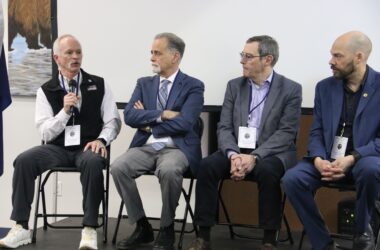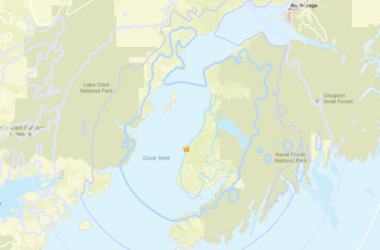Even though Omicron hasn’t been detected in Alaska or the United States, the coronavirus variant first detected in southern Africa has many world countries concerned. Alaska’s neighbor, Canada, has found a third case of the Omicron variant in travelers from Nigeria, according to ABC News, with several additional suspected cases.
Alaska’s Chief Medical Officer, Dr. Anne Zink on the Department of Health and Social Services’ social media pages answered questions relating to the Omicron variant. She says that early data out of South Africa suggests that Omicron is very transmissible as early cases were reported in both people who had been previously infected as well as those who had been vaccinated. Zink says that, despite Alaskans being tired of COVID-19, this new variant may make it harder to slow down. What’s more surprising is the fact that there are more than 50 mutations in this variant, she says, some familiar and some not seen before.
Zink encourages Alaskans to get vaccinated if they have not done so. She says if you are 18 and older and it has been more than six months since your second dose of the mRNA vaccine or two months since a J&J vaccine, to get a booster for added protection.
Zink also addresses concerns some may have with getting the vaccine:
“I think it’s really much harder to think about doing something to yourself like getting vaccinated when you’re feeling fine. When you don’t see the risk and the threat of something like COVID in front of you and you see many people with very, very mild disease and do just fine. That’s very real with COVID, we see that happening again and again. Those concerns are incredibly valid. I think what’s important is to separate correlation from causation. Just because you had a friend and something happened or you hear some stories, breaking that apart from the data and the science. What science does is it looks at what happens by chance versus what might be an effect of something like a vaccination. I think it’s also important to understand how vaccines work. They don’t stay in your system. They last in your body a couple hours to a couple days. All they do is they teach your normal, healthy, immune system how to build antibodies so that when you see the virus, that you can take it down as quickly as you see it.”
Zink says that the DHSS does not know the severity of the Omicron variant at this moment but stresses the importance of treatments in being part of what’s being closely followed.






